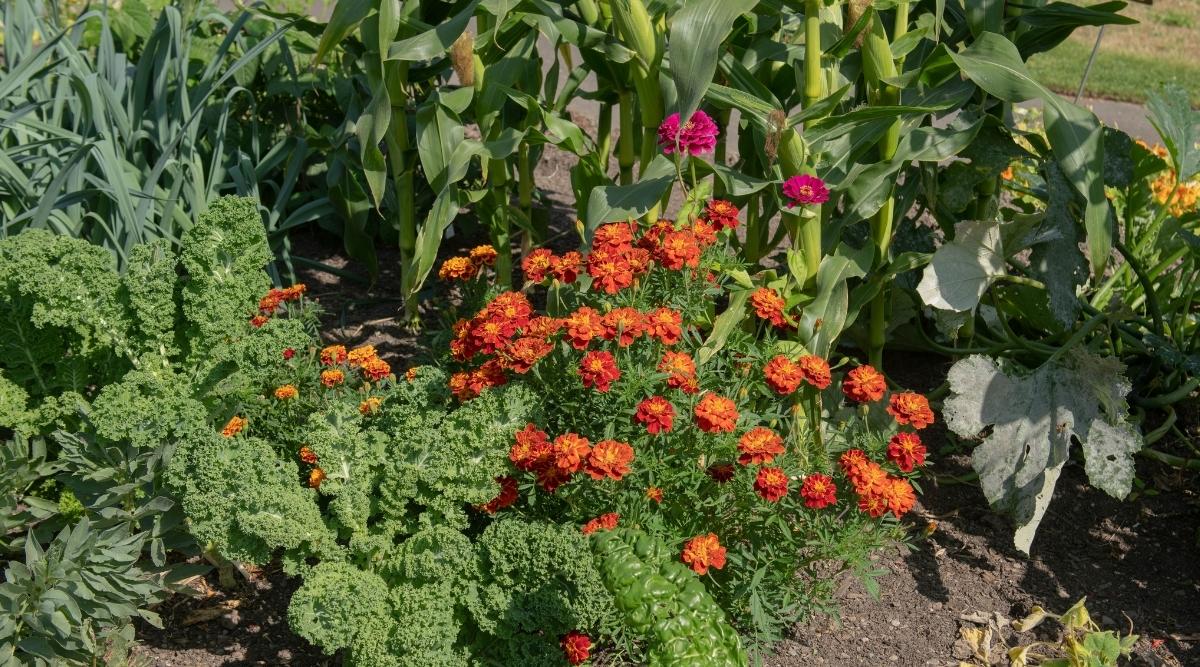
Vegetables are the easiest to grow in a container garden. A container that is large enough to hold your plant's size is all you need. The most important thing to remember is that plants do not like their feet to be wet. To check whether your container is too deep or shallow, put your finger into the soil and check for drooping leaves. You are also more vulnerable to sunburns and disease if your leaves are wet. Here are some tips to make sure that your containers are perfect for your vegetables.
Regardless of container size, containers should have adequate drainage. A drainage system is essential for pots to grow. It will depend on what type of plants you have and how they are grown. Some plants grow better in acidic soils, while others do better in soil that contains peat moss or rock. To grow vegetables and herbs, use a larger container to house them than for flowers.

You should use the correct size container to fit the available space when you plant your container plants. Small containers are perfect for small crops, while medium-sized containers are ideal for medium-sized plants. Use five-gallon buckets and large wash tubs for larger crops. The spacing requirements for most vegetables can be found in the seed packet or in the gardening resource book. Once your plants have sprouted, it is important to determine where to plant them and how many.
The proper nutrients are vital for vegetables to grow in optimal conditions. When you're starting a container garden, be sure to include the correct fertilizer. Before planting your containers, you can add organic fertilizer. An alternative is to add liquid fertilizer once every two weeks. You can also add fish emulsion or liquid seaweed to your container. Add compost as an additional fertilizer. Window boxes are a great option for plants that require a complete feed.
Watering is the most crucial part of container gardening. Keeping your containers well-watered is essential to their health and the quality of your vegetables. Place them near water sources to water them. They should be placed in a sunny spot with sufficient light. Hanging baskets work well. It is important to keep the area well lit so that pests and diseases don't grow. You can water your containers automatically by using a drip irrigation system.

When selecting containers for your garden, make sure the sun is direct and bright. The sun should be at its hottest for six hours daily, especially for fruiting vegetables. Some plants grow better in shaded or shaded areas. However, they still need plenty of water and sunshine to grow properly. You can use a sun calculator to find the ideal amount of sunlight for your garden if you have a sunny window.
FAQ
Can I grow fruit trees inside pots?
Yes! If you have limited space, fruit trees can be grown indoors. Your pot should have drainage holes to ensure that the tree doesn't get rotted by excess moisture. Also, ensure the pot is deep enough to hold the root ball. This will prevent the tree from being stressed.
What month is best for starting a vegetable or fruit garden?
It is best to plant vegetables between April and June. This is when the soil temperature is highest and plants grow most quickly. If you live somewhere cold, it is best to wait until July or august.
Is it possible to grow vegetables indoors?
Yes, it is possible to grow vegetables in a greenhouse during winter. A greenhouse or grow light will be required. Before you do this, make sure to verify the local laws.
Statistics
- As the price of fruit and vegetables is expected to rise by 8% after Brexit, the idea of growing your own is now better than ever. (countryliving.com)
- It will likely be ready if a seedling has between 3 and 4 true leaves. (gilmour.com)
- 80% of residents spent a lifetime as large-scale farmers (or working on farms) using many chemicals believed to be cancerous today. (acountrygirlslife.com)
- According to a survey from the National Gardening Association, upward of 18 million novice gardeners have picked up a shovel since 2020. (wsj.com)
External Links
How To
How do I keep weeds from my vegetable garden?
Weeds are one of the biggest threats to growing healthy vegetables. They compete for space, water, nutrients, sun, and sunlight. To prevent them from taking over your garden, use these tips:
-
When they flower, take all the plants with you
-
Clean up any plant debris at the base
-
Mulch can be used
-
Get enough water
-
Rotate crops
-
Do not let the grass get too long
-
Keep soil moist
-
Plant early
-
Harvest often
-
Add compost
-
Avoid using chemical pesticides
-
Organic vegetables are best
-
Heirloom seeds available
-
Start small
-
Learn more about companion planting
-
Be patient
-
Enjoy gardening!